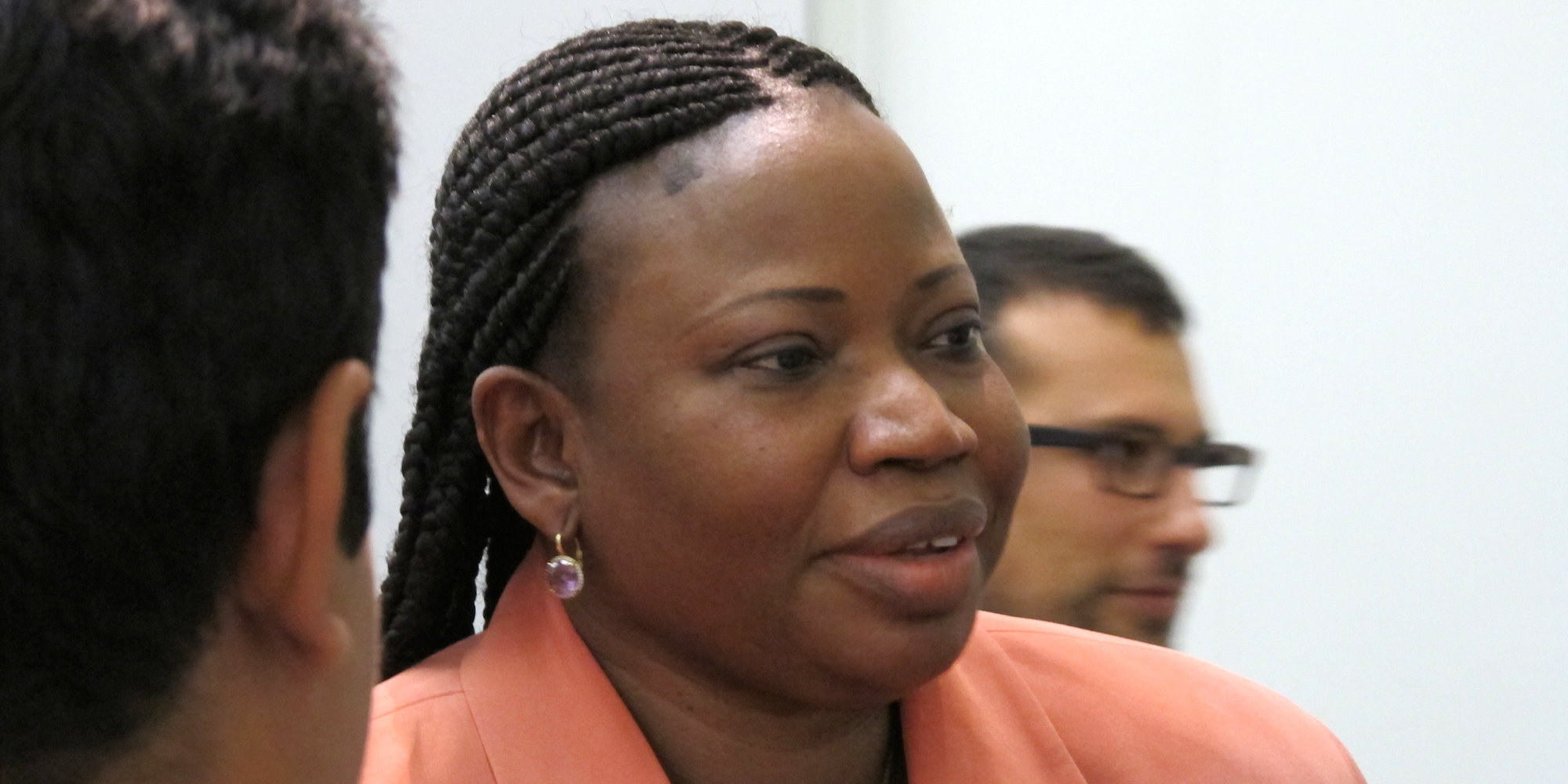The visit of Mrs Fatou Bensouda, Prosecutor Elect of the ICC, to Melbourne Law School coincides with a critical stage in the court's history.

2012 is a landmark year for the International Criminal Court (ICC), and for Mrs Fatou Bensouda, who in June will become its next Prosecutor. Ten years since it was established to prosecute the perpetrators of genocide, crimes against humanity and war crimes, the court is delivering its first verdicts.
In March Thomas Lubanga, a Congolese warlord, was found guilty of recruiting child soldiers. Last month saw closing arguments in the ICC's second case against Germain Katanga and Mathieu Ngudjolo Chui, leaders of militia groups fighting alongside Lubanga.
Speaking to a packed theatre at Melbourne Law School earlier this year, Bensouda, the first African in the top post, said that the world's first independent and permanent criminal court had reached a defining moment.
"We have now arrived in a critical juncture in this young, global institution: the closing of its first trials. This will be fundamental to complete the judicial cycle. It will be fundamental to reinforce the legal system of the court and also to give it more legitimacy as we continue our work."
"But the true relevance of these trials, as well as of other activities of the office, will more importantly lie on the fact that by their global impact they will contribute to the prevention of recurring violence. Indeed one court's ruling affects a multiplicity of cases and this is what the Secretary-General of the United Nations has referred to as the 'shadow of the court'. This shadow should be considered as the most important impact of the court."
Bensouda wants to see the preventive impact of the court's work maximised. She points to the Lubanga case where the ICC deliberately tried crimes of recruiting child soldiers in order to bring focus to the issue. The case triggered debates around the world and saw the demobilisation of 3,000 child soldiers in Nepal. Bensounda says that the Lubanga ruling "could change the life of little boys and girls".
The eyes of the world will be on Bensouda when she steps into the position of Prosecutor on 16 June. After a seven-year tenure as deputy prosecutor to the flamboyant Luis Moreno-Ocampo, she is widely seen to be the determined leader the ICC needs as it moves into its second decade.
But the true relevance of these trials… will more importantly lie on the fact that by their global impact they will contribute to the prevention of recurring violence.
Melbourne Law School senior lecturer, Dr Kevin Heller, observes that Fatou Bensouda "offers the best of both worlds: an ICC insider who offers institutional continuity, which will be critical in the coming years, but has a strong independent voice".
"She is, to put it mildly, an incredibly impressive woman: smart, articulate, thoughtful and compassionate. And her pre-ICC credentials are stellar, including significant posts at both the international level and in her native The Gambia."
Bensouda is confident that the ICC will demonstrate its credibility and prove its original mandate.
"Step by step we are moving ahead and the ICC is creating a new international dynamic, impacting other institutions and changing international relations forever."
"We are putting political leaders on notice: if they use massive violence to gain or maintain power, the message is that they will be prosecuted. I believe this is the way forward … The Rome Statute is extending, building a network of actors around the world, to maximise the prevention of massive crimes and enforcing common standards in situations where massive crimes are falling within its jurisdiction."
Image: Mrs Fatou Bensouda at the Law School in February.
Source: Joanna Trethowan